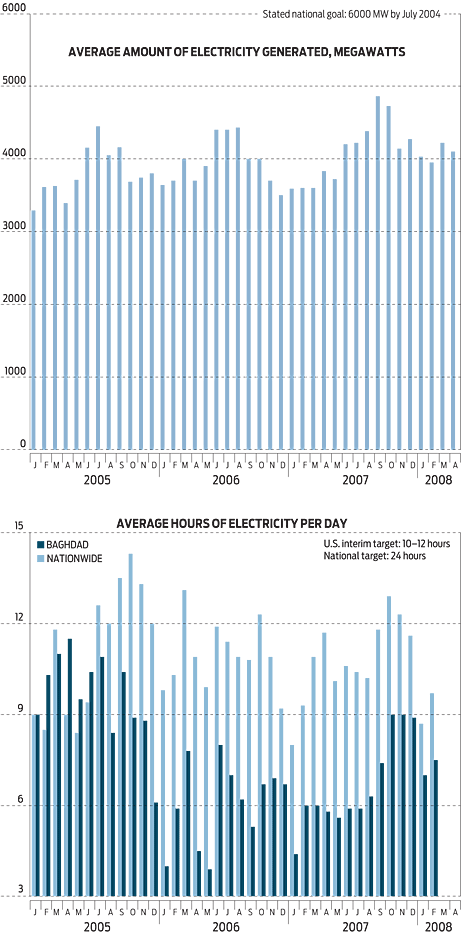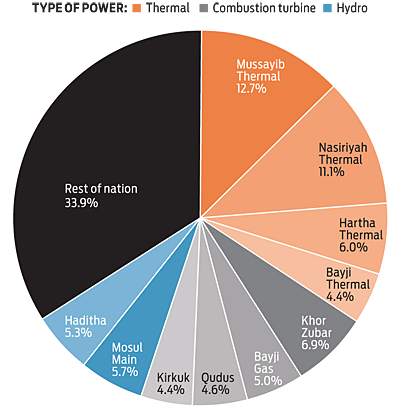It’s July in Iraq, and that means temperatures nearing 54 °C, combined with a maddening talc-like silt that invades eyes and teeth. The air-conditioning works for only about 10 hours a day; in Baghdad province, that number is closer to six.
The United States has spent US $4.3 billion to help Iraq’s Ministry of Electricity fix the country’s power grid, by resurrecting old plants and bringing new ones on line. Nevertheless, the average daily power availability has hardly increased.
In 2005, 173 generating units at 35 power plants were able to reliably produce about 5000 megawatts at peak periods. Another 13 power plants and 262 units later, Iraq still has not reached 6000 MW, the stated goal for 2004.
What’s the problem? Insurgent attacks on the electrical grid and a failure of the provincial authorities to cooperate. An electrical grid needs to be balanced: generation needs to keep up with the load, otherwise voltage and frequency will decline. The ministry sheds the load with rolling blackouts.
If provinces shared the load properly, even in midsummer, every province could have as much as 10 hours a day of electricity. But some provinces simply take as much as they can at any given time. The result: more blackouts and more downtime for the already beleaguered electrical system. Attacks on personnel have also chilled progress. In early May, Hassan Kadhum Aziz, the Ministry of Electricity’s distribution directorate’s advisor, was assassinated.

